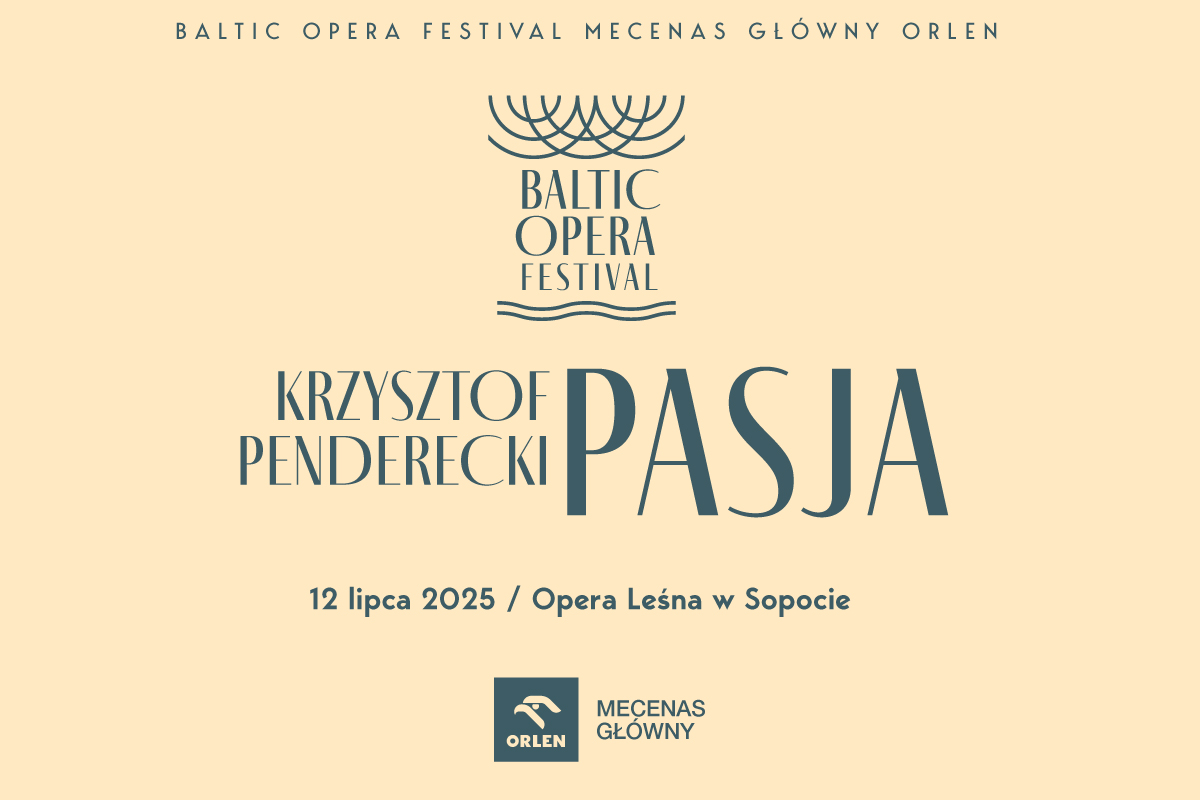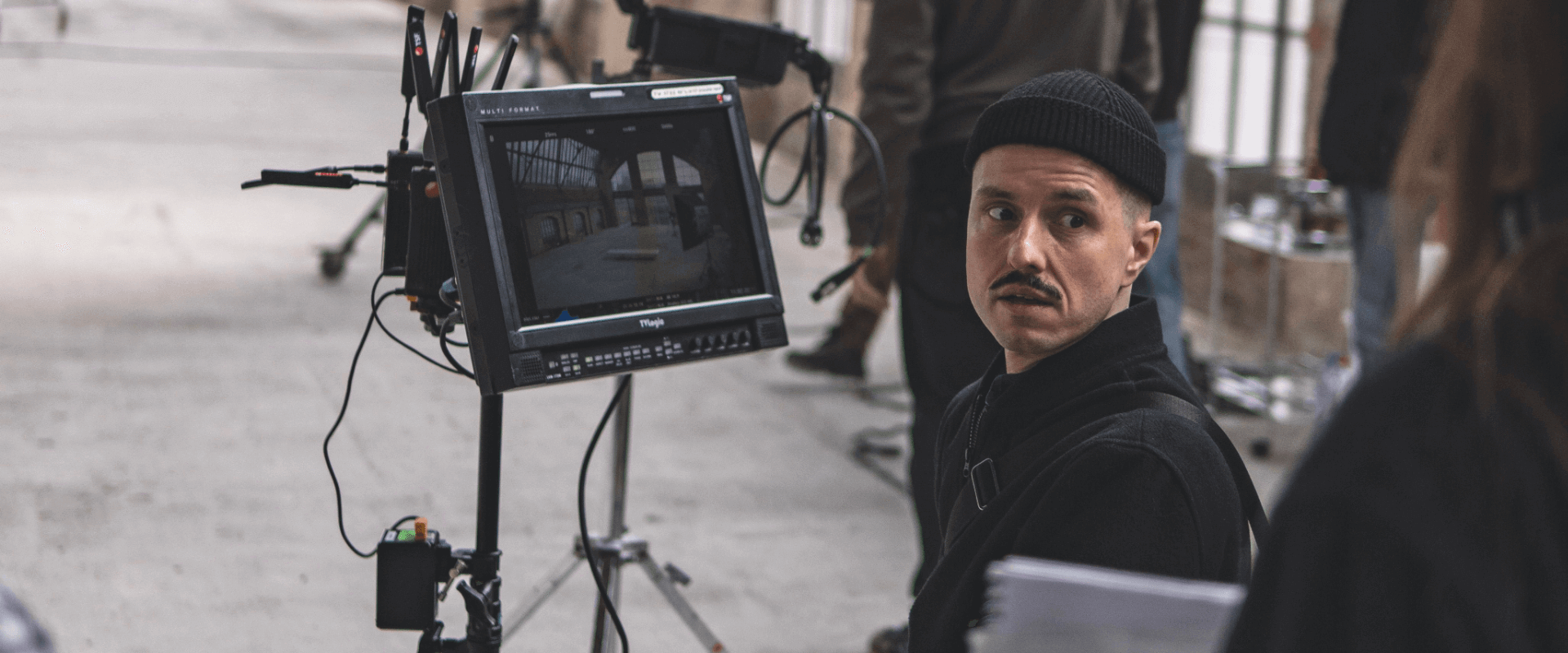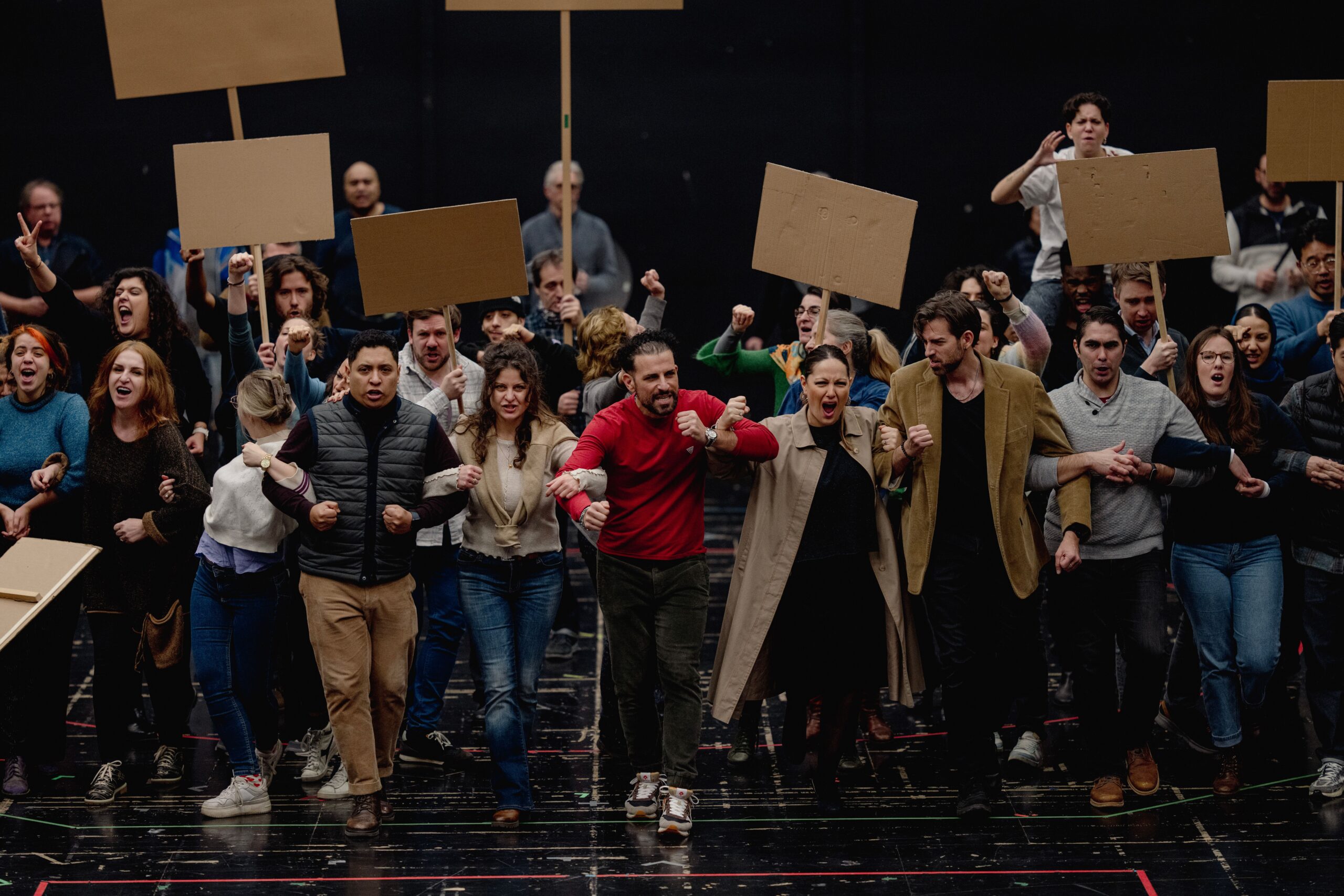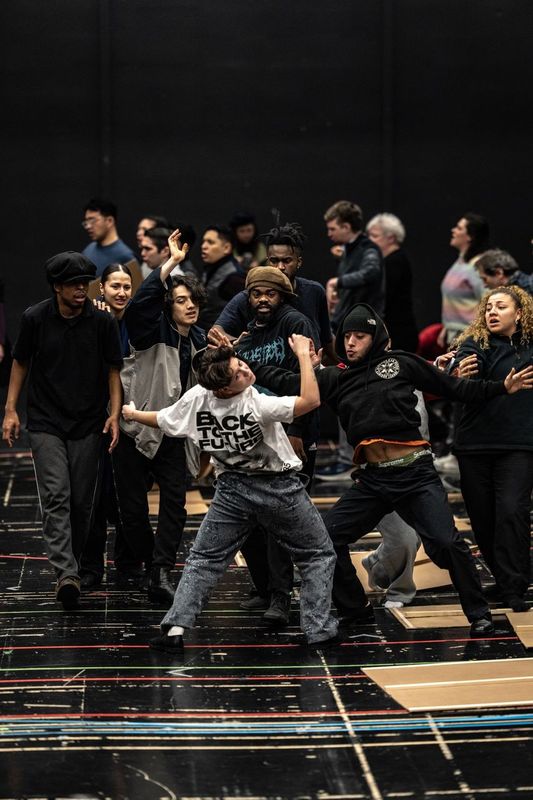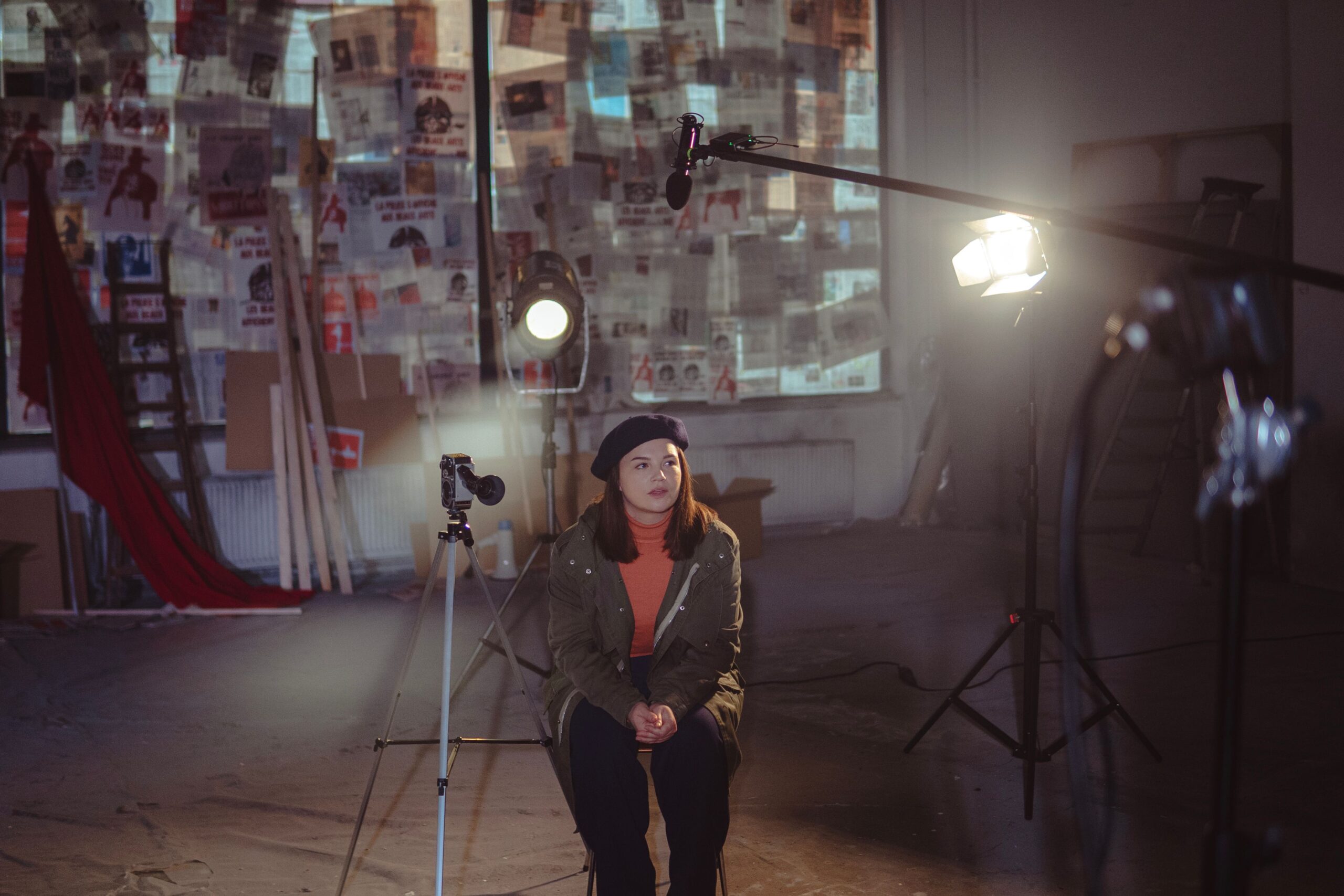 Krystian Lada: “The greatest betrayal of opera is when you give up on creating”
Krystian Lada: “The greatest betrayal of opera is when you give up on creating”
Prior to the premiere of “Rivoluzione e Nostalgia” at the Belgian National Opera La Monnaie in Brussels, Maja Kluczyńska talks to Krystian Lada, the author of the script, director and set and video designer of the show.
Spread over two evenings, the opera diptych “Rivoluzione e Nostalgia” brings together musical highlights from the sixteen first operas of Verdi. What has inspired you to create such a show?
The project involves working with what we consider a traditional form of opera called pasticcio. The concept means juxtaposing fragments of scenes, arias, duets, choral scenes to tell a new story. I discovered pasticcio a few years ago, while directing Vivaldi’s “Bajazet” in Vienna. I was very interested in how pasticcio allowed me to rediscover the best of the opera repertoire. In the past, pasticcio frequently consisted of the audience’s favorite arias and scenes. Put together in a new configuration, they told a different story, inspiring the viewers once again.
What was the concept behind the choice of specific fragments?
The “early” Verdi in opera theatres is always overshadowed by the “late” Verdi. We know “La Traviata” and “Illovatore” better than “I due Foscari”, “Stiffelio” or “Oberto”. I thought pasticcio could be a way to revive the early Verdi – completely different from what he created in his final years. The early Verdi composed operas about extreme activists – as we would say nowadays. Let’s think about “Joan of Arc” and the sacrifice made in the name of a noble idea. The music is uncompromising, there is no mezzo, no mediocre sound. It is always either very hot or very cold. The composer deals with extreme feelings. The characters of early Verdi move in a triangle, between politics, family and love.
When you ask me about the rationale, it was definitely to stay as close to Verdi as possible within pasticcio. I am still wondering how to preserve what strikes me in Verdi’s early works: the radicalism of the music and of the stories that are told, and at the same time, to show the triangle of the main characters being torn apart by ideas and emotions.
The story is told over two evenings, 40 years apart: revolutionary Italy of 1968 and nostalgic Italy of 2008. How does your script resonate with Verdi?
What strikes me about Verdi’s early compositions is that he very often uses what I call a historical mask to talk about contemporary events. Look at “Nabucco” – an example of a famous opera from this period. The story of the conflict between the Babylonians and the Hebrews is centered around the character of Nabucco. We are talking about a historical figure, we are talking about historical events, although at the time of the premiere there were no Babylonians or Hebrews on stage. Italians saw the opera as a metaphor for the conflict between the then-forming Italian state and the occupying Austrian authorities. They saw the political conflict of their time told in the guise of another important historical event that unfolded according to similar patterns. It was of a great interest to me: how to raise contemporary topics by referring to historical events from the past.
So, back to the turbulent year of 1968?
It was a very radical and very condensed year. We are talking about a revolt or revolution that took place over the course of weeks and raised the political temperature from 0 to 100. At such historical moment, it is very difficult to separate big ideas, including political ones, from personal stories. The 1968 revolution was all about that, about the personal becoming political. For that reason, I found it very close to Verdi. In his stories, it is very difficult to separate political or ideological ideas from private matters.
But that revolution took place 56 years ago!
And it has resonated to this day. We cannot imagine women’s rights nowadays, the rights of the queer community, the minority rights, without the year 1968. It opened the possibility to discuss a number of issues related to personal freedom. Having said that, the recent debate on freedom in Europe and in Poland proves that certain topics have not been concluded yet.
For me, 1968 was also the beginning of the enormous influence of the American culture on the European culture. It is difficult to describe mainstream European culture today without referring to the American one. For example, it would be problematic to outline the genre of contemporary pop music in Europe without mentioning American artists.
The final aspect I was interested in was that 1968 was a generational project. When I see generations younger than mine take up issues related to the protection of our planet, I think that it is a similar project to the one in 1968. Back then, other generation went to the barricades, to the streets, to defend their views. What I miss today, which is probably a manifestation of my nostalgia, is the fact that 1968 brought together different social groups, at least for a moment. In various countries, workers stood on barricades alongside students. Many European politicians, nowadays representing conservative views, had an episode on the 1968 barricades. They felt the need to refute the same criticism they direct at younger generations nowadays: being too radical and too idealistic.
Let’s talk about the process of rehearsing for “Rivoluzione e Nostalgia”.
It was very long – it took longest to build the performance as a musical whole and to solve the puzzle not only in one evening, but in two. It is a diptych – “revolution” is one performance, and “nostalgia” is the second one. I love doing things I have never done before. In this case, I was fascinated by how to tell a story that functions as a diptych, but could also stand alone. This is my quest for an inclusive opera theatre. On the one hand, I know there are opera lovers who are delighted they can come twice, because the more opera in their lives, the better. Having said that, I also know people for whom going to the opera once a year is challenging enough, frequently also from the financial perspective. So I was thinking about how to construct something that could become the most inclusive form of storytelling possible.
You invited people from a “different musical order”, such as street dancers, to collaborate on the opera. What do their perspectives and experiences bring to the whole?
I was wondering how to express the uncompromising nature of Verdi’s music on contemporary stage, and that’s how I came up with the idea of involving people from the world of street dance and hip-hop. They are young dancers based in Brussels or nearby. They often practice on the square in front of the opera building. On the one hand, it is symbolic, but at the same time, it is very real, to open the door and invite them inside. None of the dancers had ever been involved with any aspect of opera before. I am fascinated by their natural, organic reaction to Verdi’s music, how they talk about the emotions Verdi’s music triggers in them. They have absolutely no problem connecting with the composer in their art.
You have a reputation for experimenting, staging new and newly created works – do you think this is the path the opera genre should follow?
I am fascinated with how opera was born as an artistic genre. I am thinking here about Monteverdi, I am thinking about Francesca Caccini and the first operas we know about. It has always been an experiment. When Monteverdi worked on “Orpheus”, it was a project, an invitation to people involved in music, theater, visual arts, literature and philosophy, to resurrect the spirit of ancient tragedy. And that’s how opera was conceived. To my mind, the greatest betrayal of opera is when you give up on creating. And experiment is always an element of creation. I see the opera from the perspective of Francesca Caccini, who ends her “Alcina” (“La liberazione di Ruggiero dall’isola d’Alcina”) with a ballet on horseback. In the last scene, while the musicians improvise on stage, the audience gets up from their chairs, approaches the windows of the palace hosting the premiere and watch the horse ballet. So when today, several centuries later, I hear showing pasticcio on the stage of a traditional theater is a revolution, I say opera has seen bigger revolutions.
Opera has a crazy past, with experimenting, creating, breaking norms, and gender fluidity. Countertenors, castrati, women singing male roles and men singing female roles. It also touches on very difficult subjects. From the sex worker Violetta – the main character of “La Traviata”, to strictly political topics, such as “The Clemency of Titus”, which Mozart shows to the ruler of his country and says “please, look at yourself, this is who you are”. Opera has a long tradition of being a politically engaged and transforming form of art. And it is such opera tradition that I am faithful to.
In the historical moment of nowadays: what do we need today, in 2024? Revolution or nostalgia?
I think our times are very nostalgic. We keep looking back. On many levels, whether in fashion, theater or design, we are setimental. Similarly to Orpheus, we look back to check if Eurydice is following us. At the time when reality is so trembling and fragile, we need something we know. We need to listen to a song with soothing lyrics and melody. In today’s Europe, I often witness nostalgic attempts to reconstruct outdated structures, no longer suitable for our times. Perhaps, instead of trying to preserve them, we should think about possible alternatives. History must be remembered – not to live in it, but to create a better future.
***
“Rivoluzione” premieres on March 22 and “Nostalgia” – on March 23, 2024 at La Monnaie in Brussels. Carlo Goldstein conducts.
“Rivoluzione” will feature: Enea Scala (Carlo). Vittorio Prato (Giuseppe), Justin Hopkins (Lorenzo), Nino Machaidze (Laura), Gabriela Legun (Cristina), Hwanjoo Chung (Arminio)
“Nostalgia” will star: Scott Hendricks (Carlo), Giovanni Battista Parodi (Giuseppe), Dennis Rudge (Lorenzo), Helena Dix (Donatella), Gabriela Legun (Virginia), Paride Cataldo (Icilio), Saténik Khourdoian (Laura).


